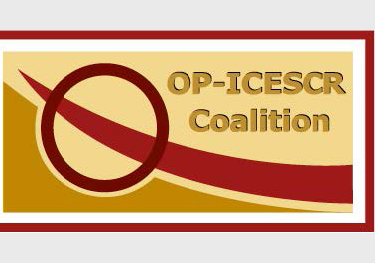Advances in negotiations on a treaty on Enforced Disappearances and an Optional Protocol to the International Covenant on Economic, Social and Cultural Rights (ICESCR) were two significant developments at the 57th session of the UN Commission on Human Rights.
These were two outcomes for which the ICJ had campaigned hard.
The Commission made encouraging progress in beginning negotiations (through establishment of a working group) on a legally binding treaty to curb the growing phenomenon of enforced disappearances perpetrated by a range of governments, the army and paramilitary groups in Africa, Asia, the middle east, eastern and central Europe and Latin America. A treaty is needed to suppress this scourge, ensure redress for victims and enshrine the “right to truth” about the fate of the disappeared for both the relatives of the victims, but also for society at large. Latin American states, France and other European states and South Africa played a constructive role on this issue.
Significant progress was also made, through the appointment of an expert, in furthering consideration of the optional protocol to the ICESCR. If adopted, citizens will be able to hold their government accountable and seek redress for its failure to protect fundamental social rights such as housing, education and health. This will give legal teeth to these rights. Support from Portugal, Finland, South Africa and a great number of Latin American states was instrumental.
The ICJ strongly supported the resolution on violence against women and, in particular, the reiterated denunciation of “honour” or “passion” as a defence to murder of women alleged to have caused shame to their family. The ICJ called on the judiciary to ensure that social practices inconsistent with international human rights standards not be condoned by the courts. The criminal justice system must protect the physical integrity of all citizens, irrespective of gender and extend beyond the closed doors of the family home.
The ICJ drew the attention of the Commission to persistent impunity for gross human rights violations in Chechnya and Colombia and called for the repeal of amnesty laws in Peru. These laws shield the perpetrators of human rights violations who must, in the interests of justice, face due process for their alleged crimes. The ICJ also called for respect of the fourth Geneva Convention by all parties in Israel and the occupied Palestinian territories. Respect for the rule of law is the only way to end the current vicious cycle of violence.
The Commission’s reiterated call for a world-wide moratorium on executions and for the death penalty not to be imposed on juvenile offenders was also passed but, unfortunately, with a diminished margin of support from last year. The ICJ also welcomed the appointment of a Special Rapporteur on the situation of human rights and fundamental freedom of indigenous people.
Once again, the passage of the no-action motion on China precluded any discussion of the human rights situation in that country. Political interests thus prevailed to ensure that some countries eluded scrutiny or were held to different standards than others. These same interests also prompted renewed attacks on Special Rapporteurs (ie independent experts mandated by the Commission to objectively assess and report on human rights situations).
The ICJ again called on the Government of Malaysia to respect the legally binding opinion of the International Court of Justice upholding the immunity of the Special Rapporteur on the Independence of Judges and Lawyers, Dato Param Cumaraswamy from a suit of defamation. These proceedings are incompatible with Malaysia’s international obligations.
The ICJ is also concerned that the Special Representative of Equatorial Guinea continues to be denied access to visit that country and yet is trenchantly criticised by that same Government for not having first hand information. The ICJ calls on the Government of Equatorial Guinea to extend full cooperation with the Special Representative.
This year’s continued and blatant assaults by a number of states on the mandate of the Commission will diminish its integrity and utility. It is imperative that the Commission not fail in its principal mission: the promotion and protection of human rights for all.




